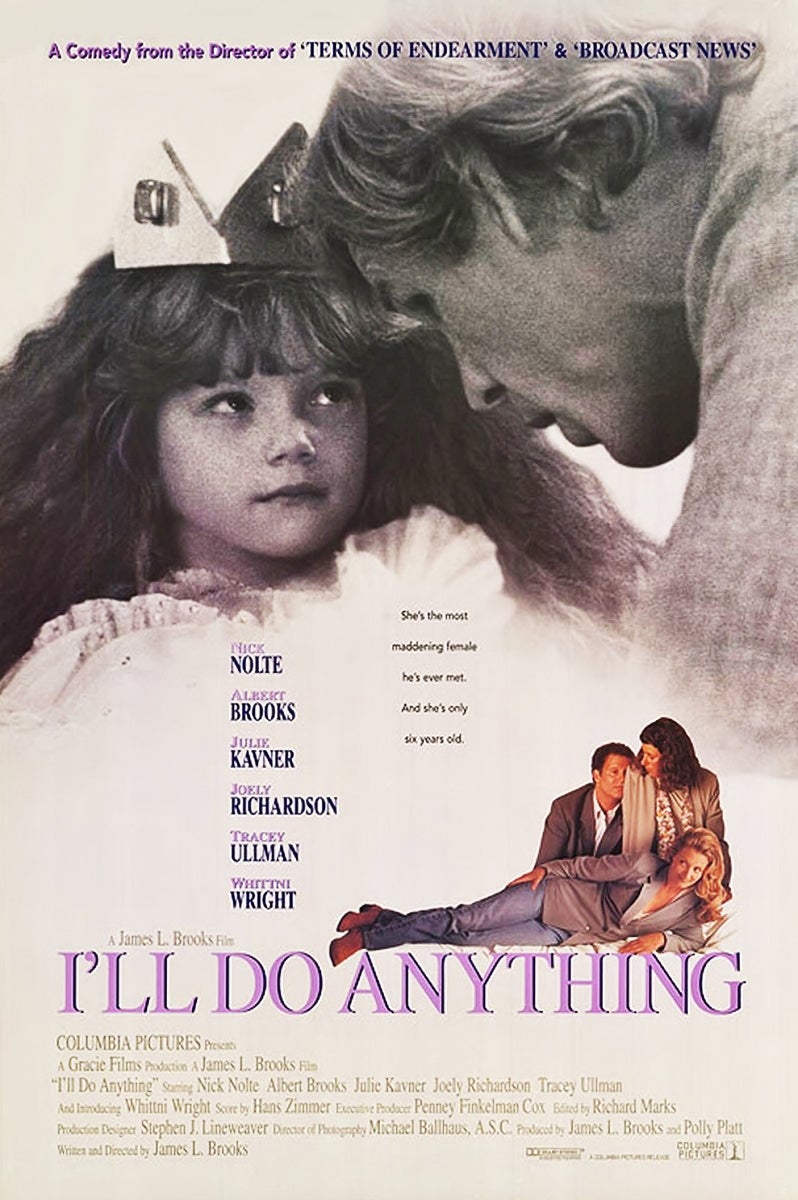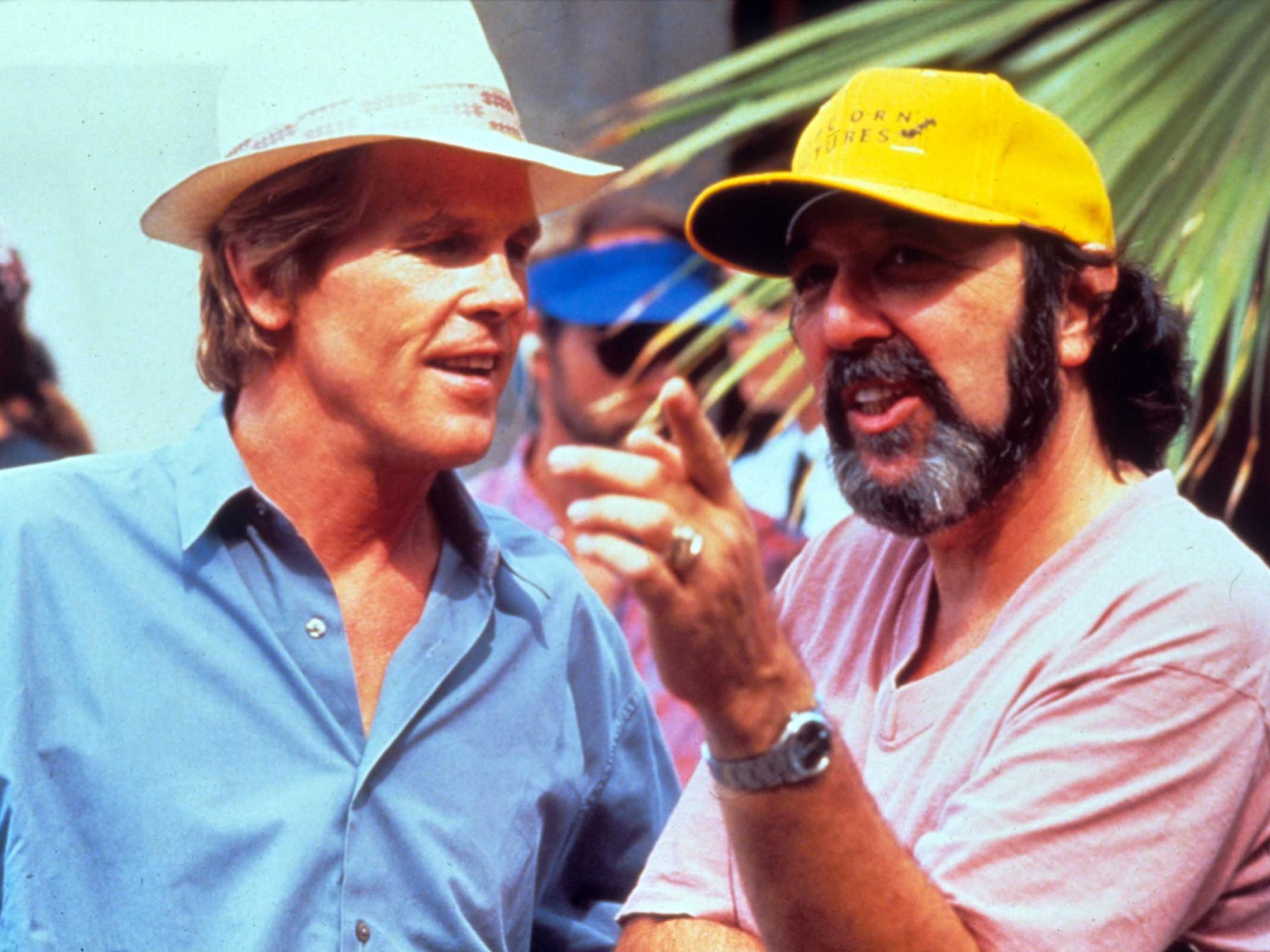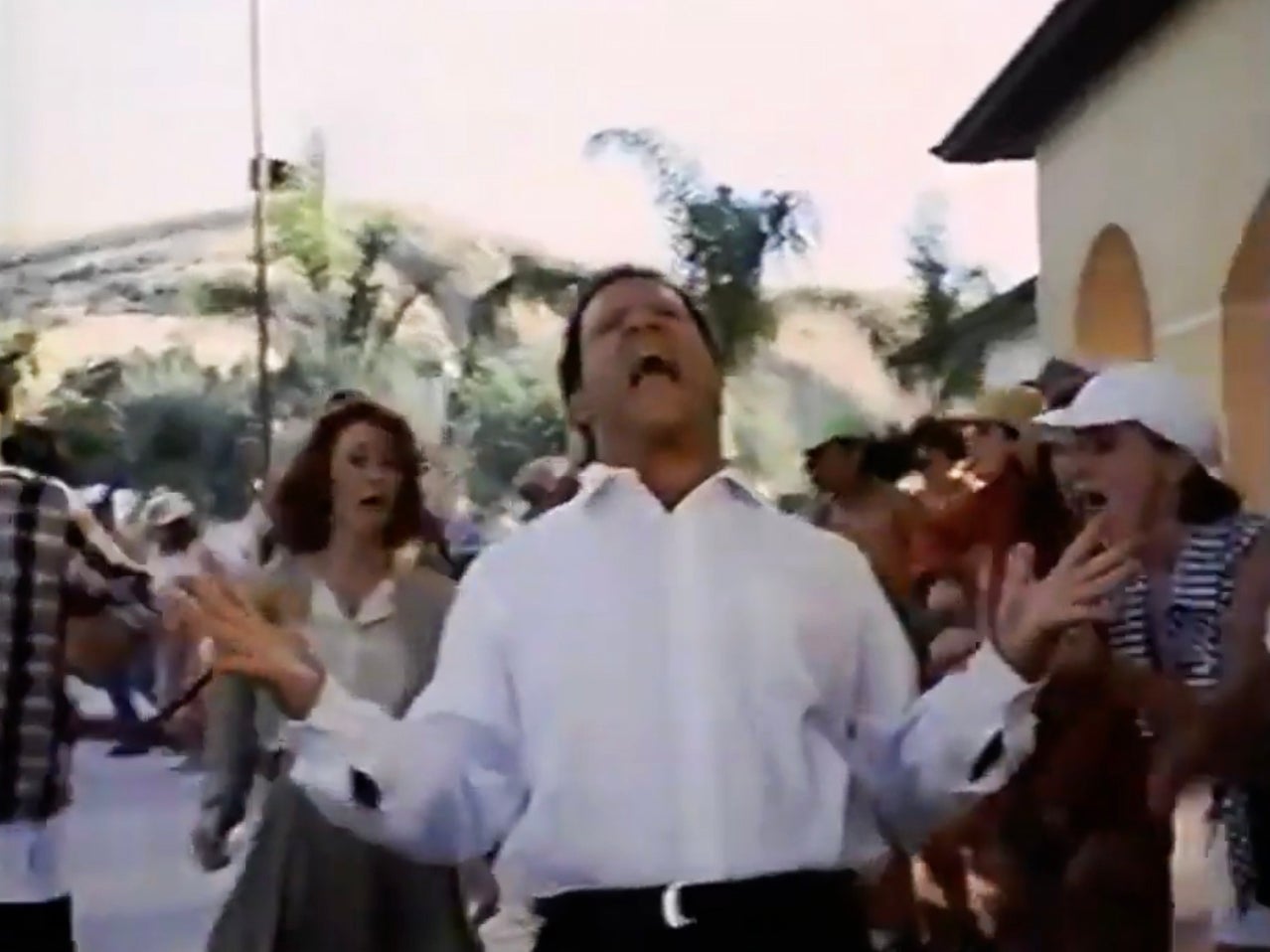The Prince musical so disastrous it was never released: the story of I’ll Do Anything | The Independent (original) (raw)
Your support helps us to tell the story
From reproductive rights to climate change to Big Tech, The Independent is on the ground when the story is developing. Whether it's investigating the financials of Elon Musk's pro-Trump PAC or producing our latest documentary, 'The A Word', which shines a light on the American women fighting for reproductive rights, we know how important it is to parse out the facts from the messaging.
At such a critical moment in US history, we need reporters on the ground. Your donation allows us to keep sending journalists to speak to both sides of the story.
The Independent is trusted by Americans across the entire political spectrum. And unlike many other quality news outlets, we choose not to lock Americans out of our reporting and analysis with paywalls. We believe quality journalism should be available to everyone, paid for by those who can afford it.
Your support makes all the difference.
On 22 August, lovers of obscure film tuned into a secret internet live stream of an unreleased Hollywood disaster. At midnight UK time, a rare and barely seen “musical cut” of the forgotten 1994 comedy I’ll Do Anything was due to be broadcast, one that featured the song and dance routines otherwise left on the cutting room floor. Until, that is, there was a last-minute hitch – the estate of the late Prince, who wrote the majority of the film’s songs, threatened to sue the site’s owners if the stream went ahead. So, for two hours, the screen was filled with a fuzzy photograph of a legal letter, and not Nick Nolte, Tracey Ullman and the woman who voices Marge Simpson bursting into song.
I’ll Do Anything is only ever remembered for what it wasn’t. The version released to cinemas was a non-singing, non-dancing non-event; a muddle of Hollywood satire and father/daughter squabbling that promptly died a death amid middling reviews and low box office. Its backstory is one for the ages, though, reflective of cinematic auteurism gone awry, and what happens when few are willing to stand up to a master.
In the early 1990s, filmmaker and mogul James L Brooks was one of the biggest figures in the entertainment industry. He had written and directed Terms of Endearment (1983) and Broadcast News (1987) and created a string of TV shows – Lou Grant, Rhoda, Taxi – that ran for years in the Seventies and Eighties; his name was on the production credits for Say Anything... and Big, and that’s his company Gracie Films at the end of every episode of The Simpsons. I’ll Do Anything was designed to be his tribute to the industry that had made him, its fantastical magic as well as its pitfalls, all of which he believed could only be conveyed through song.
Unusually, Brooks didn’t want to write the songs himself, nor work with a composer to craft a movie musical as per genre tradition. Instead he wanted to recruit A-list pop stars to write the songs, which would then be inserted into the script. Many names were approached, including Jackson Browne, Mariah Carey and Janet Jackson, before Brooks settled on three: Prince, Sinead O’Connor and Carole King.
An intriguing cast was assembled. Nolte would play a struggling actor nervously bonding with his estranged daughter (six-year-old newcomer Whittni Wright), who is foisted upon him by his bitter ex (Ullman). Marge Simpson voice actor Julie Kavner would play a Hollywood worker bee who embarks upon a relationship with a self-involved film producer played by Albert Brooks. Surrounding them are Ian McKellen, Rosie O’Donnell, Anne Heche, Woody Harrelson and Joely Richardson (replacing Laura Dern, who had wisely dropped out to do Jurassic Park instead). But a problem was that the cast members who had to sing and dance couldn’t actually sing and dance. McKellen, who would go on to be one of the few good things about the similarly disastrous Cats adaptation in 2019, wasn’t asked to do either.
Only one major voice apparently expressed concern about the film. Polly Platt, a writer, producer and set designer, had lurked unappreciated on the fringes of some of the most important filmmaking of the Seventies, Eighties and Nineties. She was also a producer on I’ll Do Anything, and clashed with Brooks over what she felt was a movie musical with no reason for being a movie musical – as revealed in the most recent season of the film history podcast You Must Remember This, in which author and historian Karina Longworth explores the myths and legends within Hollywood lore.

The original poster artwork for ‘I’ll Do Anything’ (Columbia Pictures)
One anecdote from Platt’s unpublished memoir, which was read aloud during the podcast, involved Prince visiting the set and watching early footage of a musical number in which Kavner, who sounds like Marge Simpson both in and outside of a recording booth, slowly murdered Prince’s work. “She sang off-key and was worse than bad, she was awful,” Platt recalled. “I watched Prince listen to his song being mangled, and he was expressionless, no winces, no looking around. I ventured over to speak to him, despite his ban on being spoken to. ‘This is not how the song will be in the movie,’ I told him. ‘We will have someone else sing the song on the soundtrack later.’ He nodded, as if I had commented on the weather. He stayed a few minutes more and left as quietly as he arrived.”
Platt’s promise didn’t pan out. Ironically for a film in which disastrous test screenings are a major plot point, I’ll Do Anything wasn’t recognised more widely as a misfire until its own test screenings. There, Brooks tested a variety of different cuts of his film – some with songs, some without, some with professional singers dubbing over the film’s cast. “The audience absolutely rebelled against the way we presented the music,” Brooks told the Los Angeles Times in 1993. “It was up there with the top five worst professional times in my life.”
Ultimately, the songs would be axed entirely, despite early trailers featuring footage of the song and dance numbers and boasts about Prince’s involvement. “I thought music would articulate that which you couldn’t legitimately articulate in dialogue,” Brooks told The New York Times, “but the music broke the sense of reality instead of enhancing it ... I feel like I made three movies. The first was a musical, the second was the compromise, and the third is what you see now.”

Watch Apple TV+ free for 7 days
New subscribers only. £8.99/mo. after free trial. Plan auto-renews until cancelled

Watch Apple TV+ free for 7 days
New subscribers only. £8.99/mo. after free trial. Plan auto-renews until cancelled
What was released in cinemas is frustratingly flat. I’ll Do Anything is never quite funny enough, or moving enough, or mean enough, to truthfully be anything at all. There are sparks of life here and there: Kavner and Albert Brooks, trading raspy barbs, comfortably steal the show; there are some witty lines at Hollywood’s expense, but nothing especially sings, either (pun intended). The film grossed just a quarter of its $40m budget in cinemas, and barely made a dent on home video. Brooks would bounce back with 1997’s Oscar-winning Jack Nicholson romcom As Good as It Gets, and I’ll Do Anything was rapidly forgotten.

Nick Nolte and James L Brooks on the set of ‘I’ll Do Anything’ (Moviestore/Shutterstock)
But what of all those songs? Or the “musical cut” that never officially saw the light of day? Only King’s track, “You Are the Best”, still exists in some form in the film itself – with its chorus sung acapella by Wright in a brief moment of cutesiness. Of the others, Prince would repurpose one song, “Don’t Talk 2 Strangers”, for his soundtrack to Spike Lee’s Girl 6 in 1996, and it would later be covered by Chaka Khan. Prince would also re-record two other I’ll Do Anything tracks, “My Little Pill” and “There Is Lonely”, for a 1999 album of past rarities. The five other tracks Prince supplied to the film, bearing titles like “Wow” and “I Can’t Love U Anymore”, have never been properly unearthed. A low-quality copy of O’Connor’s track, titled “This Lonely Life”, has done the rounds in fan circles.
The “musical cut” has had a similar fate, with a number of different unfinished workprints being traded on the bootleg circuit. More than one thread on Reddit suggests it has been rented, under the table at least, in a few of Hollywood’s second-hand video stores over the past two decades. Just a handful of film lovers have been lucky enough to see it for themselves.
“It’s honestly kind of a train wreck,” jokes screenwriter Tyler Ruggeri, who watched a two-and-a-half-hour “workprint” cut of the musical version via the bootleg circuit. “The transitions in and out of the musical numbers are extremely jarring because it’s like, ‘Whoa, they’re singing now, but I don’t quite know why.’ They’re just kind of there. I think that if Brooks were really a student of musicals or had affection for the genre, he would have known the structure of how these things work, but I don’t think he did. I will say it’s the kind of flawed movie that could only be made by really talented, genius-level people. They’re not hacks – it’s not that kind of a mess. It’s the kind of thing that only really smart and ambitious people could try to pull off, and they just got it wrong.”

Albert Brooks sings and dances in the unreleased ‘I’ll Do Anything’ musical cut (Columbia Pictures)
In 1994, Brooks said he would be interested in eventually releasing the music from the film in some form, and potentially on Broadway. Danny DeVito was also interested in featuring some of the “musical cut” in a documentary about the making of the film – neither has come to pass. In fact, there’s been zero movement on getting Brooks’s original vision out there. Ruggeri suggests that it’s because the released I’ll Do Anything sparked few ripples outside of the filmmaking community. This may have been down to its interest in very niche particulars about Hollywood – casting directors, test screenings, the women who work in script development (“D-girls”, as they’re belittlingly known). Ultimately, beyond industry insiders, nobody cared enough.
“I don’t know who, in regular mainstream America, is gonna relate to any of that,” Ruggeri says. “I think that’s why the movie was never a Showgirls or a Gigli – it was never a huge bomb that later became a cult classic or found an audience that embraced it after the fact. It seems to only loom large in the minds of people who work in the film industry. If you’re a film producer or an executive, it remains almost a cautionary tale.”
He wishes it wasn’t kept under wraps, though. “I went through four years of film school without ever having seen a rough cut or a workprint of a real movie,” he says. “And I think it’s really fascinating to see people on the level of Brooks fail. It’s empowering in a way to look at something like that and see them really go for it yet come up short. As an educational experience, or just as someone who’s fascinated by filmmaking in general, I think it would be really valuable to have it out there.”
While his estate swung into action to stop August’s live stream, Prince may be the key to _I’ll Do Anything_’s musical cut being released. Since his death, whole albums of tracks have been unearthed from the star’s vault, and there may be some interest in exhuming what was, at one point in time, the closest we’d ever get to a Prince-sanctioned musical outside of Purple Rain. Sure, his material is being sung by the vocal equivalent of a bag of screaming cats, but it’d be something at least.